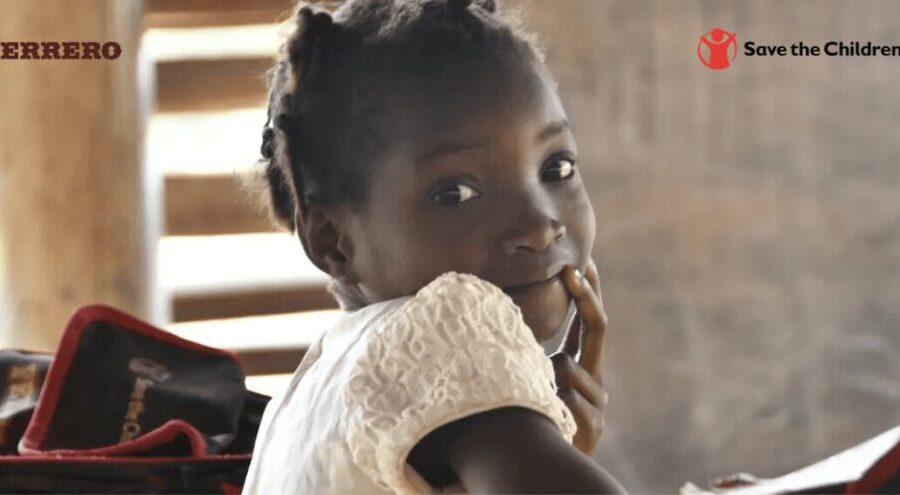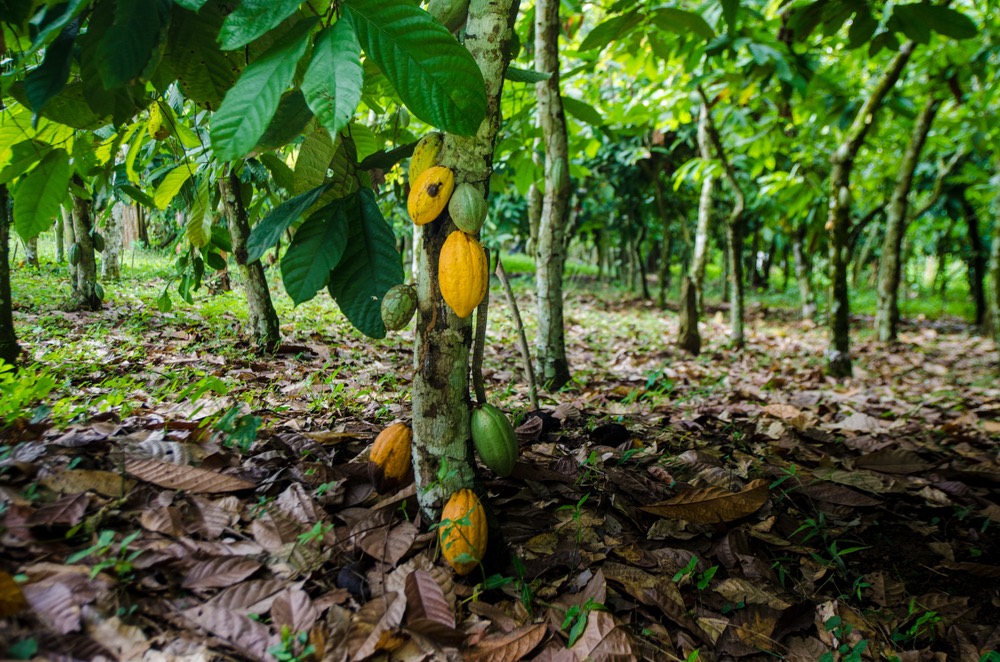Ferrero joins Save the Children expanding scheme tackling child labour in cocoa communities

pic: Ferrero
More than 200 cocoa communities in Ivory Coast are set to benefit from measures to strengthen children’s rights and support, as Ferrero and Save the Children expand a key pilot programme, reports Neill Barston.
The major confectionery group joined forces with the key charity nearly a decade ago, providing on-the-ground initiatives to help farmers thrive amid widespread levels of poverty within West Africa.
With many agricultural workers operating in the region earning significantly under $2 a day, placing them well below UN-defined poverty levels, child labour within cocoa and other key crops has stubbornly persisted despite wider industry, charitable and NGO efforts to combat the issue.
As Ferrero has noted, official ILO studies have previously found that at least 1.5 million minors are subject to child labour in West Africa – which has reportedly reduced from reported levels of more than 2 million around a decade ago, but remains a significant, urgent challenge that has threatened the future viability of the sector.
Moreover, as our title has previously reported, the industry has also been hit with ongoing major tests of climate change impact on crop yields, illegal gold mining operations degrading farming land, as well as an ageing workforce of farmers well into their 50s, who have been unable in many instances to hand farms on to their next generation of the sector.
The underlying fact remains that communities have felt little choice other than to employ their own children in many instances to do potentially hazardous harvesting work which would otherwise be designated purely for adult labourers.
However, progress has been claimed in the region, with initiatives such as the pilot scheme started by Save the Children, which runs until 2030 and is backed by Ferrero, have positively impacted communities.
As Ferrero, which is due to play its part in our World Confectionery Conference in Brussels on 11 September, addressing key sustainability challenges as well as the growing health and wellness agenda in the sector, confirmed, the latest joint-venture scheme will see a combined total of nearly €20 million being placed into expanding the initial project to help an additional total of 42,100 children living in 235 communities in Ivory Coast, up from an original total of just over 80 locations.
The financial back includes contributions from Italian Cooperation, an international development organisation, which follows a competitive selection procedure that was reportedly handled by the Italian Agency for Development Cooperation (AICS).

As Ferrero noted, the project was initially outlined in Abidjan during the May 2025 mission of the Italian cooperation system in West Africa, led by Stefano Gatti, Director General for Development Cooperation.
Significantly, as the company confirmed, the programme aims to strengthen child protection and the respect of children’s rights in cocoa-producing communities. It will implement a series of actions to reduce risks and address the root causes of child labour, which are closely linked to socio-economic vulnerability.
Crucially, child protection measures have also been embedded within supply chains, ensuring that interventions reach the most vulnerable children, promote long-term sustainability, and can be replicated at scale. The initiative also relies on performance indicators and evaluation systems to ensure tangible and lasting outcomes.
The initiative adopts a holistic approach, engaging governments and institutions, civil society, and private stakeholders. By fostering resilient and economically sustainable communities, the project creates the necessary conditions to protect children by ensuring access to education and basic healthcare, improving birth registration systems, securing livelihoods and nutrition, empowering communities and women-led enterprises, and tackling child labour.
As the business asserted, the core innovation of this initiative lies in its integrated, systemic approach—both on the ground, by connecting communities, families, suppliers, and local governments, and at the level of economic sustainability through the mobilisation of institutional and private funding to enable long-term structural change.
Structural change
Such reshaping of the sector’s approach has long been called for by many sector observers, who have cited the fact that the Harkin-Engel protocols of the past two decades that promised to completely eradicate the worst forms of child labour, have not come to fruition across the industry.
Despite this, the actions of Save the Children, supported by major industry partners such as Ferrero, have been seen as a blueprint for bringing about tangible, long-term impact.
As Ferrero has previously noted at our World Confectionery Conference, it is only through expanding such partnerships and working collaboratively with NGO’s and governments within the region, that its underlying social challenges can be met at scale.
Some of the most game-changing legislation on the issue is set to come into force later this year, with the much-anticipated EUDR laws governing traceability within the cocoa supply chain. (recap on our conference video interview with Francesco Tramontin, of Ferrero, who will be returning to play his part in our conference this year).
These primarily target deforestation eradication, but they are interlinked with accompanying corporate due diligence frameworks that are also making their way – with some level of resistance within the European Parliament from centre-right groups, that enshrine the greater level of human rights protections that Save the Children and Ferrero are already practiced in action ahead of such mandatory requirements.
“We have always believed in the importance of collaboration among public institutions—both national and international—civil society, and the private sector, recognising the unique value each stakeholder brings,” said Daniela Fatarella, CEO of Save the Children Italy.
“True change is not the result of isolated actions, but of transformative, long-term alliances. This is why we view this partnership as a true investment—one that focuses on long-term, cross-cutting actions involving multiple actors to deliver sustainable results.
“This project proves that sustainable socio-economic development in a country like Côte d’Ivoire is indeed possible—through the supply chain expertise of a company like Ferrero, the strategic vision and funding capacity of the Italian Cooperation, and the on-the-ground experience of Save the Children. Together, these partners can achieve an outcome greater than the sum of its parts, becoming real drivers of change.”
Echoing those views, Isabel Hochgesand, Global Chief Procurement Officer at Ferrero believed that the scheme’s expansion was of critical importance.
She commented: “At Ferrero, respecting and promoting human rights is fundamental. These core principles are embedded in our sourcing practices, supporting the individuals and communities within our supply chain,” said “This new phase of collaboration with Save the Children and the Italian Cooperation marks a significant step towards a more sustainable cocoa ecosystem. By working together across the entire cocoa value chain, we aim to build a transparent, inclusive, and lasting supply chain—capable of generating meaningful impact for both communities and our business.”

